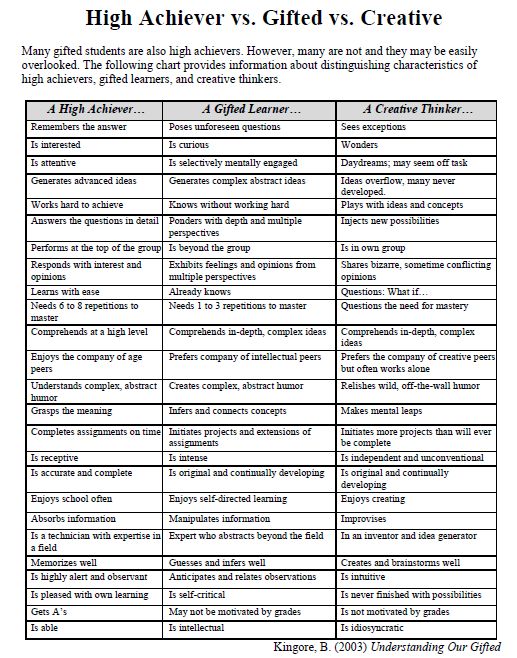When observing a gifted student, there are many things that stand out about this special type of student. They are highly intellectual, and will ask questions about things to test their own knowledge and question the authority of teachers. They will take things apart to learn what’s inside of them. They will also investigate and analyze things in more depth, allowing them to find new and interesting solutions to their problems. This trait is an indication that gifted students are better at problem-solving than the average student.
Metacognitive knowledge
In a new study, researchers in Czech primary schools trained teachers to improve the metacognitive knowledge of their students. The students, who were about 12 years old, were grouped into two groups: one that received metacognitive training and another that did not. All students completed the same computer task to study five variables. Students completed a standardized evaluation, and their responses were logged into an external file.
The researchers found that the amount of declarative metacognitive knowledge among gifted students was significantly higher than that of the general cohort. The results showed that gifted students were more likely to apply learning strategies, which led to greater achievement in school. The researchers also found that the number of inconsistencies in reading skills was associated with higher school achievement. Moreover, gifted students were found to have more metacognitive attributions than non-gifted children.
Need for precision
The need for precision in thought about gifted children is one of the hallmarks of exceptional students. Highly gifted children often require great precision in thought, requiring extensive argumentation and the correction of errors. In addition, gifted students are often more likely to be overly analytical, even when solving a problem that should be simple. In this article, we will explore the need for precision in thought. Hopefully, you will find this article informative.
Need for empathy
Teaching empathy to gifted children is critical to their development of morality and ethics. Children who are sensitive to others’ emotions experience intense negative feelings. For example, most children know when their parent is angry, but some sensitive gifted children cannot pinpoint the cause of their own anger. They may feel many different emotions at the same time. It can be difficult to determine the causes of their negative feelings, but they will certainly be aware that other children are experiencing these same emotions.
Lack of knowledge can also prevent gifted children from feeling empathy. Their limited life experiences make it difficult to understand other people’s emotions and motivations. In other words, a two-year-old crying because leaves fall does not know that trees will grow new leaves in the spring. They may be acutely aware of another person’s anxiety and not realize it. This kind of empathy will help them navigate life’s challenges. But there are some limitations to empathy. Empathy requires practice.
Need for connection with peers
A recent study found that girls and boys had distinctly different expectations of friendships. Girls report greater levels of intimacy, trust, and loyalty in their friendships. While this difference is significant, these findings are not specific to gifted children. The study was designed to examine differences between children of different abilities. However, there is still a need for further study to determine how the development of social relationships impacts the needs of gifted students.
A similar study in high school found that male gifted students had different peer relationships compared to non-gifted adolescents. However, the characteristics of male and female gifted students were similar. In addition, students with giftedness were more likely to help their peers and advocate for social justice. The study also found that gifted students were more likely to feel emotionally attached to their peers. This suggests that males and females have different needs in peer relationships.

